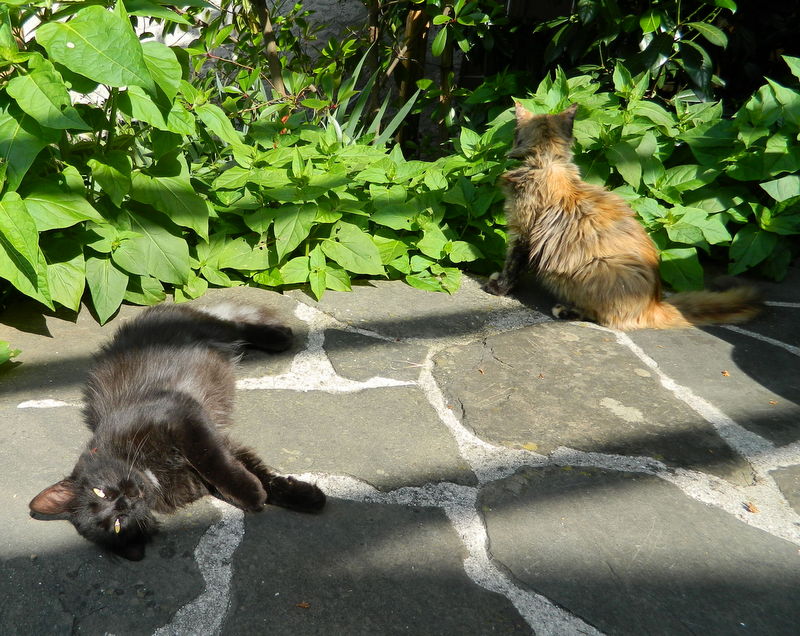Were you expecting a blog about 100% pure Italian? Actually, the Italian word pure has nothing to do with the English word ‘pure’.
pronunciation
The Italian word pure is pronounced pooray, with the accent on the first syllable (poo-). The placing of the accent is particularly important because if it falls on the second syllable (-ray) it becomes purè, as in purè di patate (mashed potatoes, also written puré and purea).
So what does pure actually means, and how do we use it in everyday speech? Let’s find out.
N.B. pure is sometimes written and pronounced without the final e: pur
feel free, please
the most common, but difficult to translate use of pure is when it is used after an imperative or polite subjunctive. You’ll here it used a lot in formal, polite speech.
servitevi pure (feel free to help yourselves)
si accomodi pure (please, take a sit)
dimmi pure (please, tell me)
also, too, as well, as does (anche)
N.B. pure is used less commonly than anche, but may be preferred in comparisons and lists of similar things:
Ambra ha il pelo lungo come pure Mr.Black (Amber has long fur, as does Mr.Black)
nei saldi ho comprato un maglione di lana e un cappotto, pure quello di lana (in the sales I bought a wool jumper and a coat, which is also made of wool)

Ambra ha il pelo lungo come pure Mr.Black. Ambra has long hair, as does Mr. Black. Photo by Geoff
even (persino)
c’erano tutti, pure Mario! (everybody was there, even Mario!)
il film era proprio bello, è piaciuto pure a Giovanna, a cui di solito non piacciono i film dell’orrore! (the film was really good, even Giovanna liked it, and she doesn’t normally like horror films)
despite, even if (anche se)
here, pure is used in front of a gerund, and in this case it becomes pur:
pur facendo del loro meglio non sono riusciti a vincere (despite doing their best they didn’t manage to win)
sono dovuto andare a lavorare pur avendo un raffreddore da morire (I had to go to work even if I had a terrible cold)
albeit, although, even if (anche se)
here, pure is used with the subjunctive sia in the colloquial expression sia pure
ho bisogno di uno stipendio, sia pure misero (I need a salary, even if it’s very small)
sia pure di controvoglia, Mario è andato in gita scolastica (albeit unwillingly, Mario went to the school trip)
in order to, just to
here, pure is used with the preposition di, and is followed by the infinitive: pur di
farei qualunque cosa pur di farla finita (I would do anything just to get it over with)
pagherei qualunque prezzo pur di aver quella borsa (I would pay any price in order to have that bag)


Comments:
Chippy:
Sorry I’ve not been able to respond over the last few months but all your blogs are sooooo helpful. Grazie tanto.
Geoff:
@Chippy Nice to hear from you Chippy, it’s been a while! We do appreciate your feedback, Grazie mille, Geoff 🙂
John:
Grazie Serena
Devo leggere questo blog di volta in volta pur di imparalo!
Serena:
@John Bravo John! 🙂
Parastoo:
Tutti tuoi blog sono veramente BRAVISSIMI!
Vivo in italia da gennaio e studio italiano solo per pochi mesi. Questo blog mi aiuta molto.
Grazie e grazie e grazie 🙂
Geoff:
@Parastoo Siamo contenti che i blog ti siano d’aiuto. Buona permanenza qui in Italia!
A presto, Geoff 🙂